This may seem like something of a provocative title, but I am merely picking up on the common refrain that Italy’s current government is the most right-wing since the fascist era.
Is Giorgia Meloni the new Mussolini?
By Andrew Lawford
This article is published on: 21st February 2023

It would be no minor issue for the country if indeed we did find ourselves heading down a similar path, so rather than simply dismissing out of hand the possibility that Meloni could be a Mussolini for the new age, I thought I would look into it further. We are, after all, talking about someone who as a much younger woman expressed the view that Mussolini was “a good politician”, whatever exactly that is supposed to mean. I imagine we all expressed at least some views when younger that we might cringe to think about today, but certainly Meloni’s comment on Mussolini was something of a clanger considering the office she now occupies.

Before we talk about Meloni’s politics, let’s think about the difference between the Italy of 100 years ago and today. 100 years is a useful timeframe, because 1922 was the year of the March on Rome – the moment when the fascist movement kicked into a higher gear and, notwithstanding the fact that it was poorly resourced and even more poorly organised, managed to bring Mussolini to power. The fascist movement had begun a few years earlier, populated initially by disaffected soldiers returning home to anything but a victor’s welcome following the First World War. Subsequently, the fascists managed to find their raison d’être and much broader support in the fight against socialism/communism, yet the entire movement might easily have fizzled out had it encountered even a modicum of resistance from the monarchy and the political establishment or if one of the many assassination attempts on Mussolini had succeeded in the early years of the regime* .
As fascist power grew, the desire to return Italy to its rightful place in the world, as heirs of the Roman Empire, took hold of Mussolini’s imagination, leading to the conquest of such places as Libya, Ethiopia and Albania. At home, the country was dragged into the modern age through the execution of public works programmes as well as monumental changes to cities such as Rome. The next time you wander down the via dei Fori Imperiali, consider that you are in an area profoundly changed by Mussolini, who demolished an entire area of Rome to make way for what was initially called via dell’Impero – put in place so that he could see the Colosseum from his office in Palazzo Venezia at the far end of the road. It is fair to say that from an economic and social perspective, the Italy of 1922 is almost unrecognisable compared with the country we live in today.

Now let’s consider the Italy of 2022 that swept Giorgia Meloni to power. Notwithstanding its difficulties, Italy is undoubtedly among the wealthiest countries in the world. I know there can be large regional differences and often the systems are confusing, but generally speaking Italian healthcare, education, infrastructure and other public services range from adequate to excellent. Italy is the home to world-leading industries and is certainly a place where one can rise through the social hierarchy regardless of one’s origins. If you need proof of this, consider that Leonardo Del Vecchio, the founder of Luxottica who died last year as one of Italy’s richest men, was born in 1935 to a solo mother and grew up in an orphanage.
Italy has many of the hallmarks of modern, well-heeled democracies, including an ageing population and a prevalence of small families (when people decide to have children at all). It is incredible to think, but over the course of my lifetime (I’m not quite 50 years old), the number of babies born in Italy each year has halved from about 800,000 to about 400,000 currently. The odd incentive for young families isn’t going to change that trend in any substantial way.
Imagine, now, if you will, that Meloni decided to pick up the fascist cudgel and start to take a more aggressive geopolitical stance. The current army of one-child families is probably the greatest guarantee against this because how many of these parents will permit their children to march off to war? Occasionally one does see fascist meetings – for example I recall seeing one reported in Cremona to commemorate the death of Roberto Farinacci, a particularly hardcore exponent of the black shirt, but to be honest the sight of fat old men singing “Giovinezza” (the fascist anthem, dedicated to youthful courage), was as comical as it was pathetic. It is also amusing to note that one of the main scandals so far in the Meloni era has been her decision to use the masculine article “Il Presidente” as opposed to “La Presidentessa” or something similar. This seems to me to be the kind of problem you discuss when you really don’t have any serious problems (or, perhaps more accurately, you don’t wish to discuss the various intractable problems that do exist). I also don’t think we should be particularly concerned over the apparent revival of Berlusconi’s connections to Putin: he simply can’t accept that he’s become a marginal figure, almost a caricature of himself, so he’s returned to his advertising roots and is willing to do anything to get attention.

What I do see is a general trend towards nationalism, which can, I suppose, be seen as a very watered-down version of fascism. There is at least the possibility of some expansion of state participation in business, although one can but hope that no one is considering a return to the days of IRI (L’Istituto per la Ricostruzione Industriale) – the behemoth state holding company founded during the fascist era that for decades controlled huge swathes of the Italian economy. In this context, it is disturbing to hear discussion of the potential nationalisation of Telecom Italia (TIM), although this might be best seen as an (expensive) opportunity to correct a poor privatisation that left the company imprisoned by its debt burden. It is more likely to see the state getting involved at a smaller scale, with the recent trend in the use of the state-controlled CDP (Cassa Depositi e Prestiti) for financing and even venture capital activities an indication of things to come. It is also more than likely that the state guaranteed loans issued as part of Covid support measures will eventually result in the need to absorb zombie businesses in politically sensitive sectors.
All in all, it seems to me that Meloni fortunately has neither the innate tendency towards fascism, nor a populace willing to be led in that direction. We would probably do better to think about whether the current global trend of rearmament will lead to problems in 10 – 20 years time when all the shiny new weapons are ready for use. I worry that if you build enough of them then sooner or later an excuse will be found to use them – violence is violence, regardless of political ideology.
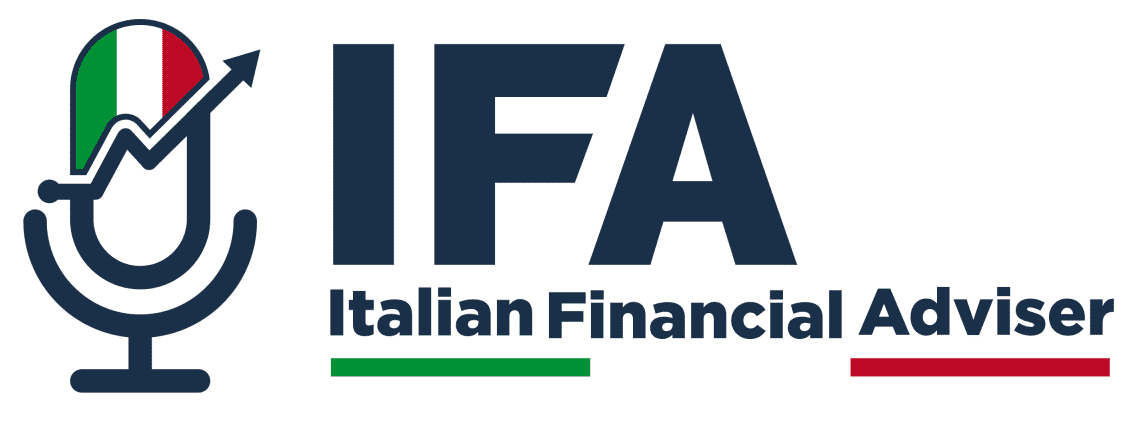
Subscribe to my podcast:
IFA (Italian Financial Adviser) on:
Apple Podcasts, Spotify, Google Podcasts or Stitcher
Am I paying too much Wealth Tax in Spain?
By John Hayward
This article is published on: 21st February 2023
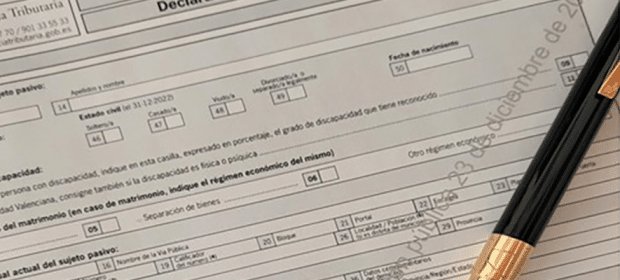
Just when you thought that it was safe to win the lottery in Andalusia or Madrid, the socialist Spanish government have introduced a new
temporary Solidarity Tax.
According to Investopedia, a solidarity tax is a government-imposed tax that is levied in an attempt to provide funding towards theoretically unifying (or solidifying) projects. In other words, it is a tax on the wealthy to provide funds for the not so wealthy. Other regions still have Wealth Tax with varying allowances and this will continue without the risk of having to pay two taxes. That said, taxes are rarely straightforward and I am confident that there will be issues in the future which will result in the Spanish tax office tweaking things. It is interesting, if not extremely concerning, that Wealth Tax was introduced on a temporary basis as well. It has been around for the last 11 years. So, not really temporary in my opinion.
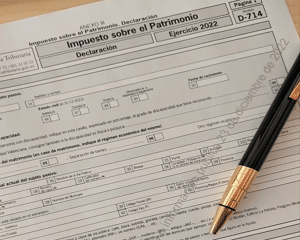
We are in Modelo 720 season at the time of writing, with overseas assets having to be declared by 31st March. Although not a tax declaration, the Modelo 720 naturally leads on to Wealth Tax. One of the asset types to declare is property.
In Spain, the tax office can reference the Cadastre to establish a property value. However, they do not have access to the land registry in, say, the UK. Therefore, the only price that is in writing is the purchase price. It is this value that should be entered on the Modelo 720 and subsequently be liable, or not, for Wealth Tax. My suspicion is that people have declared what they believe to be the market value and are possibly paying too much in Wealth Tax as a consequence.

By redistributing wealth and utilising the allowances, and applying the 60% rule (contact me for more information), it is possible to reduce Wealth Tax (and/or Solidarity Tax) or even eliminate it completely.
We can introduce you to investment products that are not only tax efficient in Spain in terms of income tax but can help to reduce Wealth Tax.
Financial updates February 2023
By Katriona Murray-Platon
This article is published on: 19th February 2023

The Taxe d’habitation has officially been scrapped for main residences in 2023. However in order to find out which properties may still be subject to taxe d’habitation (second homes, rentals etc) and the tax on vacant lodgings, the French tax authorities are requiring all those who own their own homes, second homes or rental properties to do a new declaration before 1st July 2023.
I’m so glad that February is here. After a long and cold January it’s so nice to see the bright sunshine and the mimosa flowers in my garden. That said January wasn’t too bad since I was able to get away for a lovely week in Gleneagles in Scotland for the Spectrum conference. It was a fun week of meeting with product providers, celebrating 20 years of Spectrum, highland games, walks in the Scottish countryside, and horse riding. If you thought the 2022 was a difficult year in the markets you were right. When I spoke to our product providers at our conference they told me that 2022 was one of the most difficult years they had ever experienced. Not only were equities down but the bond markets suffered too. No one can say what may happen in the future, but we can always hope, and already there are signs of improvement in 2023.
The Taxe d’habitation has officially been scrapped for main residences in 2023. However in order to find out which properties may still be subject to taxe d’habitation (second homes, rentals etc) and the tax on vacant lodgings, the French tax authorities are requiring all those who own their own homes, second homes or rental properties to do a new declaration before 1st July 2023. This includes properties held jointly, usufruitiers and properties within an SCI. This service is available on your online tax account from 1st January 2023 and the declaration has to be completed by 30th June 2023.

I had a go at doing this declaration on our own tax account and it is really quite easy to do. If you log into your account on the French tax website (impots.gouv.fr) , at the top there is a tab at the top with “Biens Immobilier”, you click on that and it will show all the properties you own, this will include any garages or out houses on your property. There should be a blue alert bubble saying how many declarations you have to do. You click on that and you will see exactly which declarations need to be done. Then you click on the option to declare your property. It will list the named occupants of the property, if nothing has changed then click on “aucun changement” (no changes) and then “valider” (approve) then it’s all done! The whole process took about 5 minutes, much less than the actual income tax return! In our case they listed our house and garage separately so I had two separate declarations to do for these. My husband is also a “nu proprietaire” of his mother’s house following the death of his father some 20 years ago. This house was listed but all we could do was consult the declaration, we didn’t need to do this declaration as his mother is the occupant of this property.
This declaration has to be done and there could be a fine of €150 per building for not declaring or for any mistakes or omissions on the declaration. If you have any questions you can contact the tax office via the messenger service by choosing the option “j’ai une question sur le service Biens Immobiliers” (I have a question on the property service).
The tax brackets have been officially increased by 5.4%. I wrote about the new tax brackets in my November Ezine but I will publish them again when we get closer to tax season. There is good news for parents with young children who go to a nanny or nursery, the amount of expenses allowed for the tax credit has finally been increased from €2300 to €3500 per child (making the total tax credit €1750 per child) and this will apply to your childcare expenses in 2022.

Further good news is that the savings accounts the Livret A and the LDDS, which did have a 2% interest rate have now been increased to 3%. The LEP now will have an interest rate of 6.1%. However bear in mind that the maximum deposit into the Livret A is €22950 and 3% of this is €689. The LDDS maximum balance is €12,000 at 3% this equals €360. Presuming you meet the income threshold, you can only put a maximum of €7700 which at a rate of €6.1% would earn you €470. So on €42650 of capital put into these savings account, you would earn €1519 fee from tax and social charges or 3.56%. Furthermore these amounts are paid yearly not monthly or quarterly so you will only receive these amounts on 1st January of next year.
Finally if you didn’t do any renovations or improvements to the energetic efficiency of your home in 2022 you can still do so in 2023, irrespective of your level of income. The renovation bonus or MaPrimeRenov’ has been extended until 31st December 2023 and the amount of financial assistance available has also been increased. To find out what you can do according to your income levels and what financial assistance you can receive, this document is useful: https://www.ecologie.gouv.fr/sites/default/files/19164_maPrimeRenov_DP_Janvier%202021.pdf It unfortunately dates from January 2021 so needs to be updated with the new amounts but it is still useful to give you a rough idea.
If you have any questions on any of the above or any other financial matters please do get in touch.
10 common financial planning mistakes expats make
By Portugal team
This article is published on: 13th February 2023

Whether you are living in Portugal or thinking about a move, you will have heard lots of tips and tricks from friends and done your fair share of Googling. Here we list some of the most common planning mistakes so you can avoid them.
1. Planning too late
Most people tend to be reactive rather than proactive when it comes to sorting out their finances. Planning ahead of your move will allow you to take full advantage of all the windows of opportunity and the tax savings Portugal has offer. But if you have already moved and have not made plans yet, it is not too late to improve your long-term position. Don’t put it off.
2. Syncing for a different system
Some people do not review their assets and are of the view that their planning has worked just fine up to now. But Portugal’s system is markedly different from the UK and you could unknowingly be doing yourself out of benefits and tax breaks, or even worse, creating further (unnecessary) tax liabilities.
3. Not applying for Non-Habitual Residency (NHR)
Applying for NHR is generally a financial “no-brainer”. Just because you think you don’t need it now, does not mean it may come in handy in the future. You only have a small window of opportunity to apply for NHR once you become a resident of Portugal, so do not miss out. It could save you thousands in taxes in the long run.
4. Withdrawal strategies
Taking money from the wrong place, at the wrong time or at an inopportune time can be expensive and create tax liabilities that could otherwise be avoided. If possible, you should plan at least 12 months in advance and take advice if you are not sure of the best way forward.
5. Not paying attention to fees and charges
Charges can profoundly affect returns but can be disguised by good market performance and/or ‘clever’ advisers. Read the small print, ask questions and shop around to find out if you are really getting a good deal.

6. Focusing on return and not risk
Many investors focus solely on headline performance and do not consider investment returns in the context of risk. This is important, particularly if you are a balanced or cautious investor. If two portfolios generate an average of 5% a year but one is very high risk and the other is very low risk, clearly one portfolio is better than the other.
7. Not knowing your ‘number’
Do some cash flow planning. Many are unaware of how much they can safely spend based on their current wealth, pension provision and the need to plan for unforeseen expenses. They either spend too much and jeopardise their future lifestyle or worry unnecessarily and underspend, possibly missing out on a lot of fun!
8. Not reviewing enough or reviewing too much
We suggest you review your finances at least every 12 months. Times change and as new solutions become available, costs usually go down. But equally micro-managing and frequent changes are also counterproductive as it usually involves cost and stress. Get the right balance.
9. Not shopping around
If you meet a professional you like, that is great. However, shop around. Meet others and stress test the advice and proposition. Just because someone seems nice, does not mean they are the best person for the job.
10. Not planning for UK Inheritance Tax
Many believe that once they are out of the UK inheritance tax will not apply. This is wrong as it will always apply if you are UK domiciled. Moreover, you could also have a Portuguese tax liability meaning there could be double taxation. Ensure that you address estate planning as early as possible.
The difficulties of 2022 and how to approach 2023
By Andrew Lawford
This article is published on: 10th February 2023

As we begin 2023 we find ourselves yet again in rather uncertain times. 2022 proved to be a very difficult year for investors (especially up until about the middle of October), given that there was basically nowhere to hide. The classic 60/40 equities to bonds balanced portfolio returned somewhere in the region of -18% over the year¹ ; you have to go all the way back to 1937 in order to find another negative performance greater than -15%.
The fact is though that this type of portfolio historically has worked remarkably well: looking at data from 1928 onwards, such a portfolio has lost money on an annual basis only 21 times, and only 10 times was the loss greater than 5%. Even 2008, which most people will recall as a truly atrocious year for equity markets, was not so bad for the 60/40 portfolio due to the strong support received from the bond market.
So why did this happen? Should we consider 2022 the moment in which broadly diversified, balanced portfolios stopped being a valid investment strategy or was last year simply an aberration (or the exception that proves the rule)?
It is fair to say that there had been a creeping risk in the 60/40 portfolio for some time, it’s just that this particular risk wasn’t where people were accustomed to finding it. In recent years, fixed income investors have found themselves grappling with low or even negative interest rates. In practical terms, if you buy a bond with no yield, your best-case scenario (excluding the absurdity of negative interest rates) is that the bond goes nowhere for the entire time you hold it. Our risk-free returns gradually transitioned into return-free risks. Given this scenario at the beginning of 2022, it should come as little surprise that many fixed income investments performed even worse than conservative equity investments and certainly failed to provide the support that most people would hope for in a bad year.
¹Using US market data – S&P500 for equities and 7 – 10 year Treasuries for bonds

The good news is that after the difficulties of 2022, many assets now offer better value than they did 12 months ago, but whether or not 2023 will offer great returns or is destined to test our nerves again is a matter of great debate.
It would be tempting at this point to start looking at economic forecasts for 2023 to get an idea of what to expect. The issue here is that which I examined in my article on inflation – we can’t actually know what the future holds, so let’s concentrate on putting together a portfolio that is likely to serve us well as we attempt to generate a reasonable return for the medium-long term.
Far more important than economic prognostication when constructing a portfolio is understanding your own risk profile, because this allows you to give appropriate consideration to matters that you can ascertain and that will certainly affect your investment returns. In no particular order, you need to be thinking about:
- Where are you in the life-cycle of contributing to or drawing down from savings?
- What are your overall financial resources and how adequate are these compared with your needs?
- What are your aspirations?
- What is your ability to withstand market volatility?
- How much do you worry about your money?
Once you have answered all of these questions, you can come up with an appropriate posture to risk. Whether or not you should vary this posture depending on the current market circumstances is a question that you must try to answer at the outset. If you are going to change your posture on the basis of current circumstances, then you must believe that somehow you are able to understand the current situation better than the market consensus, and also understand the affect your view might have on the markets if it happens to be correct. Your assessments might be correct occasionally, but are also likely to be wrong quite often (rather like those of professional forecasters). This leads to the maxim that for nearly all people, nearly all of the time, the appropriate posture is their neutral one based on their risk profile.
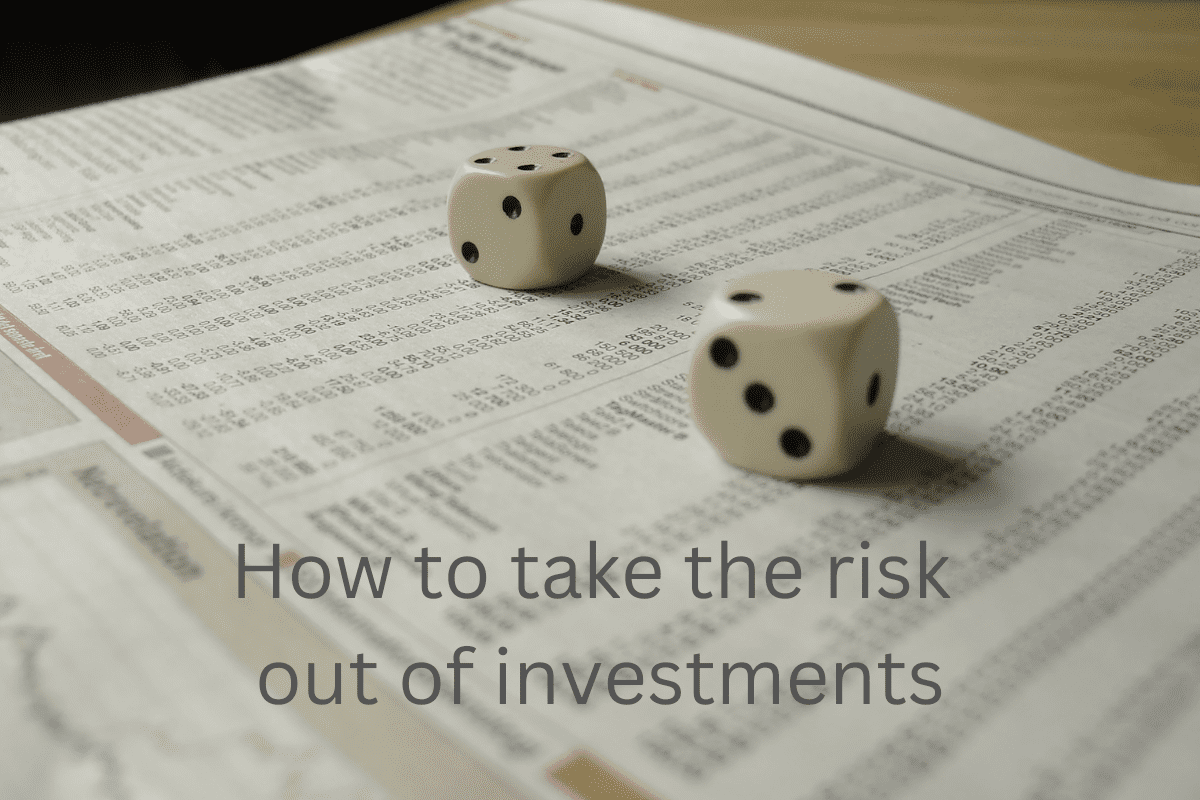
There is one other extremely good reason why you would always be well-advised to maintain this neutral posture: it will help you to avoid the cardinal sin of investing – selling low. As I explained in the article linked above, long-term investment offers magnificently favourable odds of good returns, but if you are prone to selling at the bottom, as you may well be if you decide to oscillate between “risk-on” and “risk-off” postures, those odds are turned upside down and will likely cause serious damage to your wealth. Of course, you might also end up buying high occasionally, which may lead to a period of regret, but if you have invested wisely, then time will iron out these wrinkles. It is undoubtedly better to concentrate your attention on what you can know and influence, rather than wringing your hands over economic forecasts.
These are complicated issues that all investors have to face. My advice aims to keep you focused on the important issues rather than leaving you to try and puzzle through the ever-present “noise” in the investment markets. Over the long-term, you will almost certainly find that ignoring the distractions provided by the market action in years like 2022 will contribute to, rather than detract from, your investment success. If you would like to know more, or to conduct a review your current portfolio, then feel free to get in touch for a no-obligation consultation.

Subscribe to my podcast
IFA (Italian Financial Adviser) on:
Apple Podcasts, Spotify, Google Podcasts or Stitcher
Saving for retirement in Spain
By Chris Burke
This article is published on: 8th February 2023

Retirement options
One of the big differences when you move to Spain are the options available to you for retirement planning. In the UK/Ireland we have ISAs and private/employer pension schemes which both offer good tax savings.
ISAs are not tax free in Spain, and the annual ‘private pension allowance’ is only €1,500 per year per person! In some employer contribution schemes you can save up to €10,000 per year, but these are very uncommon. Compare that to £40,000 per year in the UK, or in Ireland up to €115,000 per person, per year! €1,500 per year is never going to achieve any serious amount of income for retirement.
The main reason for this is that in Spain, culturally people preferred to set up a company structure or accrue properties, passing these from generation to generation. Additionally, there is a lack of incentives from the authorities to entice people to save into retirement schemes.
Pensions have been popular for retirement in the UK/Ireland because of the tax savings and potential employer contributions. Take both of those away and they are not nearly as effective, which is what happens when you move to Spain. So, what can you do if you want to plan for retirement in a tax efficient manner?

For me, retirement is not just about a pension, it’s about a retirement plan. We help clients build that retirement strategy, taking into consideration the amount of income they want, making sure their assets are highly tax efficient (such as moving them away from future income tax positions) and then making sure everything is flexible and portable, because you never know what will happen in life. This is all done by using our client planning portal, where we work together to bring this to life using the following process:
This is all done by planning, where we work together to bring this to life using the following process:
- Assess existing assets including ISAs, pensions and other savings/investments
- Understand your objectives and when/where you are looking to retire and with how much
- Understand your current and ongoing financial situation, taking into account future events such as children/grandparents
- Compile this into a strategy where we plan, implement and review
- Review and adapt as the years go by evolving the plan to fit your life
We never know exactly what’s going to happen, but one thing is for sure, with proper informed planning and regular analysis, you will be much better prepared.
How much could the UK tax my pension?
By Portugal team
This article is published on: 6th February 2023
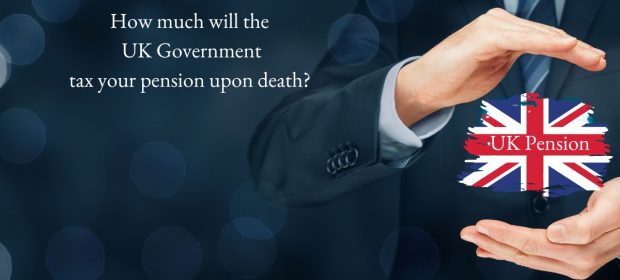
Could the UK government take up to 60% of your pension?
The Institute for Fiscal Studies (IFS) published a paper on 15th December 2022 recommending that the UK government introduce a basic rate (20%) income tax charge and Inheritance Tax (IHT) at 40% on monies left in UK pensions on death, regardless of age.
Generosity of current rules
Under current rules, your pension can pass to your beneficiaries free of UK Inheritance Tax (IHT), rather than being subject to the standard 40% rate. Additionally, if you die before age 75, your beneficiaries do not need to pay any tax on drawdown/lump sums. If you die after 75, and your beneficiaries are UK tax resident, they are subject to income tax at their marginal rate.
This is what makes pensions so valuable for tax planning and advisers will usually recommend that they are maximised and preserved, and that other assets subject to IHT are used to fund spending first, to reduce the value of your estate.
What could change?
The IFS pointed out that the current tax rules on UK pensions are very generous and pensions have become a succession planning tool rather than one for retirement provision.
Experts are musing that the UK government could change these generous IHT rules; many say this is overdue. More worryingly, they are anticipating a potential change in 2023.
The IFS recommended that a basic 20% rate is applied to any pension savings left on death, irrespective of age. Also, the pension should form part of the deceased’s estate for IHT, incurring a further 40% tax.
Why the change?
Simply put, changing the pension IHT rules would fill a big hole in the Exchequer’s coffers by bringing millions of pensions into the IHT net. It would also persuade many people to start spending their pension pots and in turn, pay income tax on the drawdown during their lifetimes.
The report explained how the generous UK pension rules specifically in relation to IHT have caused a “bizarre situation” where instead of pensions primarily being an attractive structure for old-age-planning, they have become a lucrative IHT loophole. The IFS also pointed out, “if we are to have an inheritance tax at all, it should apply evenly across all forms of wealth.”
We have also seen pensions being periodically targeted over the past decades, with taxation and limits applied in the form of Annual Allowance, Money Purchase Annual Allowance and the continuing reduction of the Lifetime Allowance, from £1.8.m in 2011/2012 to £1,073,100 in the tax year 2022/2023 – all with the aim of curbing the tax benefits. There are even serious talks of bringing the increase in the UK State Pension age forward from 2046 to 2035.
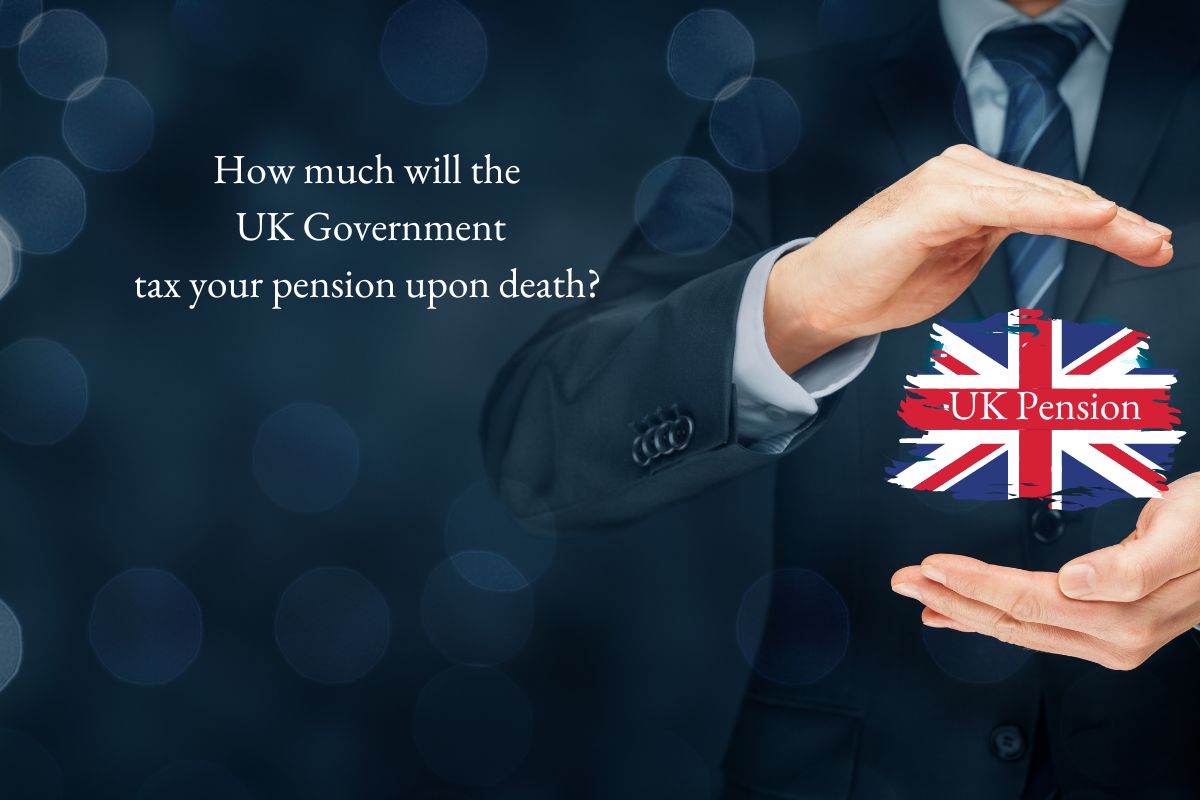
Will this affect you?
Those with estates valued in excess of £325,000 (if single) or £650,000 (jointly), including pension values, would be affected by any potential change.
It is unclear how any potential change would be introduced, although the IFS has suggested phasing in changes. It is also unclear if existing benefits would be sheltered from the change or if the rules would be retrospective, thus catching all pension savers. Although, the IFS did say that even with phasing, there would be some retrospective taxation effect.
What should you do?
Of course, there is no guarantee this will happen, but if changes are imposed there may be little or no opportunity to restructure your pensions. As a non-UK resident, you can take action now and review your finances to ensure you are protected.
So what does 2023 have in store?
By Gareth Horsfall
This article is published on: 1st February 2023

I don’t think I have ever wanted to leave a year behind me as much I did 2022. Well, maybe 2008/2009, but 2022 recorded as one of the most brutal in my career. No matter which direction there only seemed to be bad news. Thankfully we have passed into 2023.
So what can expect from 2023?
Working with The Spectrum IFA Group means that I am invited each year to their annual conference where we are invited to listen to a number of fund / asset managers who can give us some insight into what has happened and also where things might be heading. This conference was a special one because it was the 20th anniversary of the The Spectrum IFA Group and so the event was held at Gleneagles in Scotland. Apart from the cold (average -2 degree), the conference went well and I managed to scribble some notes from the various speakers, my favourites being David Coombes from Rathbones Asset Managers, Rob Gordon from Dreihaus/VAM Investment funds and Rob Clarry from Evelyn Partners.
(Disclaimer: It should be noted the views expressed here are my own. The information collected has been interpreted by me and can only be taken as such. To protect the names mentioned above none of this article should be taken as advice, recommendations or an offer of solicitation from the fund/asset managers themselves or the companies they represent).

“Heads of State don’t have a clue what they are doing…yet they think they can predict the future”
This was how one asset manager (who shall remain unnamed) started his presentation. The point being that if we are basing our investment ideas and knowledge on economists, central banks or governments themselves, then it is almost certain that you are going to get it wrong.
But don’t just take my word for it, let’s looks at some investment examples that didn’t go well in 2022, and which prove the case:
1. Wind Power is the future…but is it? It produces only when the wind blows, it is significantly more costly than traditional energy sources. The amount of ecological damage to build wind turbines in terms of resources required and to install them probably far outweighs the benefits if you place it against other alternative energy sources. In addition, the blades have a lifespan of approximately 10 years then they need to be replaced and buried somewhere because they cannot be recycled. Yet, faced with all these facts and a sector heavily subsidised by government money, a Danish wind power company: Vestas, which has never turned a sizeable profit was worth more than Apple at one point.
2. Cryptocurrency: There is not a lot to say about Crypto in 2022 other than a complete investment disaster. Bitcoin lost 60% of its value in 2022. A pretty high risk asset if ever there was one. Crypto was also plagued by the collapse of FTX with literal losses ( i.e lost and likely never to be found) assets of $1-2 billion. Hackers also stole $4.3 billion of cryptocurrency in 2022, an increase of 37% from 2021. Yet, governments tell us that government backed crypto-currencies are the future. I will stick with cash, thank you very much!
3. Tesla and Elon: How the darling of the investment world, and government officials alike, has been ousted from his perch. A bit like crypto currency Tesla lost 65% of its value in 2022. You might argue that he is changing the world with his electric vehicles, yet did you know that Volkswagen made more electric vehicles in Europe in 2022 than Tesla? So, who is changing the world? His move to Twitter should also raise eyebrows. A company worth $40bn on the world’s financial markets which has yet to show a profit and one which he also says will ‘change the world’. Remain a sceptic!
4. Inflation is transitionary: Governments also said that when the inflation train left the station in 2020, that, at best, it would be, quote, ‘transitionary’. i.e it would go away once post Covid supply chains returned to normal. I never believed this and wrote about it on a few occasions in the last couple of years. Let me tell you that inflation is here to stay…and would you like some numbers on that? Well David Coombes from Rathbones hazards a guess that inflation will continue at approx 4% in the US, 3-4% in the EU and 5-6% in the UK as an average over the next 3 years. I suspect those are headline ‘government’ declared rates. My guess is that real inflation may be somewhat higher. Protecting those savings and investments has never been more important.
Did you know that inflation needs to only run at 7% per annum for 10 years for the value of your money to halve. 2022 ‘true’ inflation was more like 10-15% across Europe, so that’s 2 of those 10 years taken care of already.

So with all this doom and gloom, what actually did do well in 2022?
Answer: The old, out of favour, industries of the past: BP, Shell, Lockheed, Schlumberger, Caterpillar et al.
Yep, those very same industries which no one wants to invest in any longer. They turned the corner and became the star performers of the investment markets. In fact, anything moderately related to ethical / sustainable / ecological investment had the hardest time in 2022. It was enough to test anyone’s ethical investment values!
However, the truth of the matter is that with interest rates likely to be higher in the next 5 years than they have been in the last 5 years, and the cost of debt being significantly higher, we may just see some of the older, cash rich industries doing quite well, and seeing some of the newer debt heavy companies struggling or even going bust.
Take Netflix. (It has become my go to TV channel!). Netflix’s business model is built on continual expansion of its subscribers and content. However, it has been heavily funded by cheap debt. How might it progress in a world where the debt it needs to make a new series costs 5 times more than before? I suspect it might survive this new world it finds itself in, but could it become a takeover target from a more established and cash rich company, like Disney?
Another example of one of those new, sustainable, ethical businesses, potential disruptor / game changer was Impossible Meat. For those that are not aware they are producing plant-based meat alternatives. In 2022 they saw their share price fall 96% as consumers turned away from their product. (I tried them myself and can’t say I was too impressed!). An example of governments pushing us towards more plant-based and lab made foods, not to forget bugs. But can they accurately predict the future?
So, the cost of servicing debt is certainly going to reshape the investment world again, yet there is one major theme which will shape the world in years to come: SECURITY and I don’t just mean military security, but also energy and food security.

Energy Security
Energy security is being driven by the war in Ukraine and the end of the reliance on Russian cheap energy. A perfect example of how energy policy is needing to change focus is Giorgia Meloni’s recent trip to Algeria to agree access to their gas fields, and export into Europe. Algeria has the 11th largest reserves in the world and have a gas surplus. Italy is trying to line itself up as an energy hub for Europe given that gas will likely now come in from the global south rather than the north, and Italy, it would seem, is ideally placed as a central Mediterranean country and its access into the EU. The only snag, which is not much talked about, is the fact that Algeria is a Russia ally and currently buys fighter jets from Russia and supports it in the war with Ukraine, so how the Italy/Algeria agreement will work is anyone’s guess.
Military security
Military security for the EU is still going to come from NATO (i.e US led military policy). It could be argued that the Ukraine war is not in the EU’s interests, in particular Germany, but they have to kowtow to NATO/US driven policy because the EU never could agree on building an army of its own to defend itself, and hence self- determination in terms of defence policy. There is no other real option and so the EU will very likely continue to arm Ukraine and stretch out the war if that is what US policy dictates, even when negotiations to end it might be possible. The order books of most armament / defence companies will be very full for some years to come.
Food security
This was an area which provoked more discussion from the fund managers. In particular how the West will need to develop to ensure that food is still delivered to our supermarkets.
A good example of a company that is innovating in the area of food security is John Deere. The agricultural machinery and tractor marker. They have already developed a fleet of unmanned vehicles which can plant, monitor and harvest. These machines are no longer human driven one-purpose vehicles. They are machines with embedded computers, checking soil temperature and microbe levels, adding fertilizer when needed and checking weather signals, determining when to plant, when to harvest etc, and all without any human intervention in the field. The biggest customers will ultimately be the biggest producers, namely the US, Brazil and Ukraine (you may be surprised about Ukraine being in the list, but a benefit of war for large industries is that they can take advantage of disaster capitalism. Large US and International agricultural companies have been able to take advantage of new laws liberalizing the sale of agricultural land in Ukraine. Previously, Ukrainian small farmers were protected and forbidden to sell their land to large agro interests. Now, big companies are moving in to take charge of Ukrainian land. On one hand the farms will benefit from economies of scale, but the small-scale sustainable farming model will struggle to survive).
Agricultural and food production will be a big investment theme in the coming years!

So, with all these themes in mind, the broad outlook for the future and investment, according to Evelyn Partners, will be determined by 4 main Megatrends.
- SHIFTING DEMOGRAPHICS
- CHANGING WORLD ORDER
- BUMPY ENERGY TRANSITION
- TECHNOLOGICAL REVOLUTION
I won’t bore you with details in each area, but here are some points around the subjects discussed:
SHIFTING DEMOGRAPHICS. Ageing populations, more opportunity for pharmaceutical companies and drug development, more use of online doctoring and diagnosis, roll out of robots in our hospitals and clinics (robot cleaners, robot secretaries, robot surgeons, robot beds moving freely from ward to surgery room without the need for people). It’s all coming and given that 80 out of every 100 people will be over the age of 65 by 2050 in Japan, and around 60 in 100 in Europe, it is difficult to see how our world will survive without increased development and innovation in the healthcare sector.
CHANGING WORLD ORDER. The US/China decoupling will continue and accelerate. Instead of globalisation, think ‘slowbalisation’. The war in Ukraine has driven a wedge between those, already weak, alliances. Russia, Iran, China, Saudi Arabia, India, (the BRICs+) and other countries are coming together to find ways to subjugate control over their regions and wrest control away from the US, especially in the use of payment systems in USD. The US will, of course, fight its corner, just look at its policies around the semi-conductor market which you will have read in my last E-zine ( ) What investment opportunities this will throw up is anyone’s guess, but the exportation of the US model of capitalism around the world, will slow and this could throw up new investment opportunities in new companies further afield.
BUMPY ENERGY TRANSITION. We are only going one way with energy policy, and that is more towards sustainable energy production; but, if you think we will be switching off the oil taps and shutting down the coal fields overnight, as many Eco groups would wish for, you will be very disappointed. (I will place a bet that in 20 years we are still using the same amount of oil as we are today, but that’s just a personal hunch. A lot of electric cars are going to need a lot of electrical energy from somewhere). A transition will happen but technology and storage of energy will need to improve, solar and wind power will just not make up our energy needs.
In addition, a little known point about the resources required for a sustainable energy transition: China dominates!

So, whilst the US imposes sanctions on China in the access to and production of semi conductors, China could retaliate with sanctions on the west regarding access to the materials needed to transition to our green economies. Yet, China needs to import 70% of its food from abroad as it is not able to produce enough to feed its population. The US is the biggest producer of agricultural products. So, from a bumpy energy transition we revert back to point 2, The Changing World Order. It will be an interesting time ahead for global politics.
TECHNOLOGICAL REVOLUTION. We have already seen so much revolution in this space since the year of my birth 1974 but the future will accelerate things even more. From next level automation in industry and daily life, 3D and 4D printing will become more the norm (I went to a fayre in Villa Borghese in Rome last Sunday and one stall was 3D printing some items on a wooden work bench) with the launch of 5G we will become even more interconnected, more reliance will be placed on cloud computing and storage of data, next-gen quantum computers, AI and controlled devices, cryptocurrencies, wearable devices…the list goes on.
And if that is not enough to scare you then check out the company recently purchased by Microsoft called ChatGPT. This is a learning AI application which can do just about whatever you want it to do. Think of it as an Alexa x 1milllion! It can provide you with any amount of information you need, ‘write newsletters’ – you just give it a subject and in seconds it will provide you with a written text on a certain subject, do maths, solve problems, write a website for you, some students are even using it to write essays at University. The scary thing is that it learns as it goes. Anyway, you don’t have to worry about my E-zine being written by ChatGPT; I don’t even think the best learned AI could imitate my crazy style.
And more food for thought
Rob Gordon (US citizen) from Dreihaus/VAM Investment funds thinks that Trump will win the Republican nomination again. But he thinks that Jo Biden, at 81 years of age when the election comes around, will win against Trump again.
David Coombes from Rathbones Inv Managers thinks that GBP will drift back into the range of 1.25/1.30 against the Euro within the next 3 to 4 years .

Lessons learned from this conference
This might sound like a sales pitch: something I try to avoid in this E-zines as they are written for information purposes only. However, whilst listening to our various speakers I became overwhelmed at just how complicated the world is becoming from a political, technological, economic and investment perspective. We can no longer ‘pick a stock’ and expect it will do well. Thought and research needs to be behind investment decisions. It’s easy to think that we can invest ourselves, be successful and then years like 2022 come along and there is nowhere to hide: stocks and bonds prices fall together, and then the only safe space is in some highly volatile areas of the commodity sector, which you wouldn’t normally play in. We need professional help and guidance to help us navigate these choppy waters head, but when there are so many changes afoot, it throws up the best investment opportunities. The investment managers and companies we use and talk to regularly are on top of these trends and can help you, our client, to get the best from your investments. The lesson learned from this conference: you are in good hands.
As always, if you have any questions about this E-zine or have any general financial planning concerns as a resident in Italy, or someone who is thinking of moving to Italy, then don’t hesitate to get in touch on email: gareth.horsfall@spectrum-ifa.com or on cell: +39 3336492356
The financial implications of your SEF appointment
By Portugal team
This article is published on: 31st January 2023
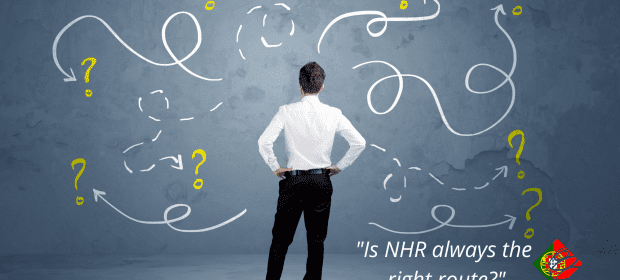
Brexit pushed many British expatriates to apply for residency – Immigration and Borders Service’s desk / Serviço de Estrangeiros e Fronteiras (SEF) to be able to stay more than 90 days in every 180 within the Schengen area, but what some may not fully understand are the implications.
Triggering tax residency
When applying for residency in Portugal you are effectively declaring your intention to stay in Portugal for more than six months. Staying in Portugal for more than 183 days a year will trigger tax residency and financial reporting obligations; you cannot simply continue paying taxes in the UK.
Brits must also be mindful of the UK statutory residence test because this could inadvertently entangle you in the UK tax net if too much time is spent back in the UK, even if you are declaring yourself as a Portuguese tax resident and spending more than 183 days in Portugal. This is not something you want to be caught up in, especially if you intend to take advantage of Portugal’s Non-Habitual Residency (NHR) scheme. You want your tax residency status to be clearly in Portugal.
Tax liabilities in Portugal
Tax residents of Portugal must declare their worldwide income and gains in Portugal.
For those with assets in several countries, you might also have tax and reporting obligations in the jurisdictions where you hold your assets. For example, UK rental income always remains taxable in the UK and is also reportable and taxable in Portugal. Conversely, UK tax is not due on UK pension income (unless it is a government scheme), but it is fully reportable and taxable in Portugal.
Whether you will pay tax twice depends on the Double Taxation Treaty between the two countries, but there are usually rules in place to avoid this happening.

Make the most of it
New residents of Portugal can apply for NHR which gives generous tax breaks on foreign-sourced income and in some cases, Portuguese arising employment income, for a period of 10 years. However, the right planning and preparation is needed, and you may need to restructure your affairs to take full advantage of the scheme. Once the NHR period ends, normal Portuguese tax rates apply.
NHR certainly provides generous tax breaks but what many do not realise is that it is also a ‘window of opportunity’ where you can plan for a tax-efficient future after NHR. For example, it is much more tax advantageous to dispose of overseas property during the NHR period when gains are exempt in Portugal, rather than post-NHR when 50% of the gain is subject to scale rates of tax.
Even for those without NHR, there are compliant structures that can reduce or eliminate income and gains tax for significant long-term tax savings. Ideally, such structures are funded during the NHR phase, so it is never too early to start planning.
Expatriates have complicated affairs: tying up loose ends in their home country, navigating the legalities and processes in Portugal, keeping track of what taxes are due where, and ongoing compliance with changing tax rules in various jurisdictions. With so many moving parts it is important that planning is not done in isolation, it is reviewed regularly and undertaken with experienced and qualified advisers.
Debrah Broadfield and Mark Quinn are Chartered Financial Planners (level 6 CII) and Tax Advisers (ATT) with nearly 20 years of combined experience advising expatriates in Portugal on cross-border tax and financial issues. Find out more at spectrum-ifa.com or contact us at +351 289 355 316 or mark.quinn@spectrum-ifa.com.
Am I tax resident in Spain?
By Barry Davys
This article is published on: 24th January 2023
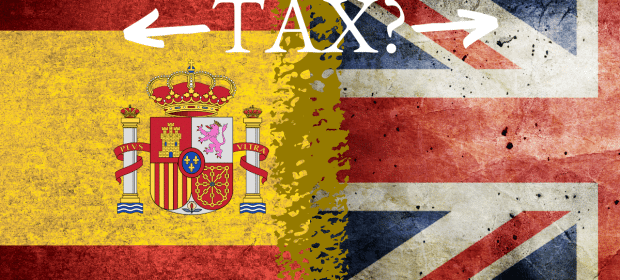
Case Study Spanish Tax Resident Couple
Husband 60, wife 60, married, with 2 children who are financially independent and living in the UK
👉 Pensions: £930k
👉 Investments £60k
👉 Cash Spain €60k
👉 House €1.25 M
👉 Wills – UK & Spain
👉 Cash UK £184k
Challenges
Build Understanding of Pension Situation
- Pensions will break UK Lifetime Allowance Rule even as Spanish Resident
- Difficulty estimating pension as coming from four different pension schemes
- When can I retire
- No overall investment strategy for pensions
- How to minimize tax on pensions
Better returns on Non Pension monies
- Bank accounts earning only 0.15% with inflation in Spain at 2%. (One of the only truly “guaranteed” returns in the financial world is that if this is you, you are loosing 1.85% pa of your spending power.)
Forward Planning including Inheritance tax
- Would Mrs X have enough to maintain property if current pensions provided only 50% pension on husband’s death?
- What would be the Spanish Inheritance tax if one partner died?
- How would this Inheritance tax be paid?
- How is inheritance tax applied in Spain and UK?
- How can the UK and Spanish inheritance tax liability be managed?
What we did
- Completed a full financial review of present financial standing
- Undertook a cash flow forecast to establish if widow’s pension was sufficient, how to pay inheritance tax on first death and how long their money will last
- Provided a Transfer Value Analysis report by our qualified pension expert – a Fellow of the Chartered Insurance Institute
- As a pension was a defined benefit pension, a secondary full report provided by a FCA regulated adviser with full UK pensions permissions in line with UK, FCA rules
- Consolidated pensions to improve tax efficiency, improve widow’s pension and manage in line with their other assets
- Built investment strategy to improve return on their investments and cash
- Clarified how inheritance tax works in Spain and UK and gave an estimate of tax due
- Built an inheritance tax strategy, including sufficient money available to pay tax in Spain on first death
- Minimised Spanish Tax paperwork and liaised with Spanish Tax adviser
- Produced Family inheritance tax strategy document so whole family knew the strategy without disclosing amounts held by the parents
- Wrote to UK HMRC for confirmation that the family home in Spain will qualify for the Main Residence Nil Rate Band
- Identified a UK inheritance Tax saving on a UK life assurance policy
- Carried out regular reviews over 6 years (so far) to update investment and inheritance tax strategies and to adapt to changes to the law
The RESULTS
✅ Clarity for clients and children on Inheritance Tax
✅ Improved return on bank accounts to 3.5% pa giving an improvement of 4,200 pa
✅ Removed pensions from UK Lifetime Allowance rules
✅ By providing documentary evidence from UK HMRC for Main Residence Nil Rate Band confirmed an inheritance tax saving of up to £140,000
✅ Improved widows pension by £7,000 pa
✅ Kept clients compliant with changing tax rules
✅ Answered the financial question “Am I going to be OK?” with a “Yes”
If you are a resident in Spain, or are planning to become a resident and would like any information on tax, pension transfers, investment planning or general financial planning you can contact me on:
barry.davys@spectrum-ifa.com or direct on 0034 645 257 525


